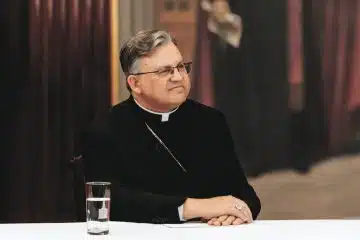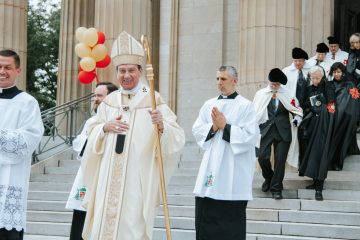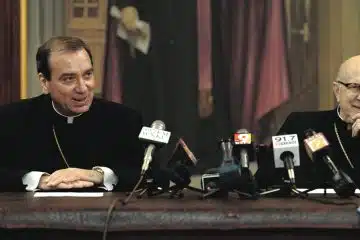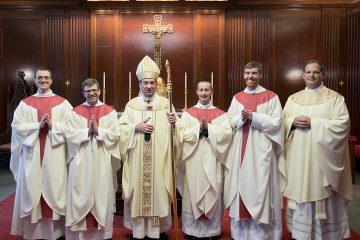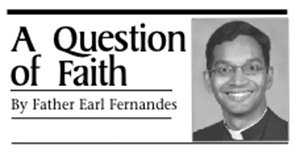Q&A: Can I attend an SSPX Mass in the case of a friend’s wedding?
September 2013
Dear Father: A friend’s daughter is engaged to be married. Her family belongs to the Society of St. Pius X. The marriage will take place during a Mass at their SSPX parish. While I realize that Roman Catholics are not permitted to attend a Mass at a SSPX parish, would an exception be made under such a circumstance? And, if so, are there any specific guidelines as our participation? For example, should we sit during the entire Mass, or do we join in standing, kneeling, etc. Would we be allowed to receive holy Communion?
Dear Reader: Thank you for your question. Some background is necessary. The Society of St. Pius X was founded in 1970 by Archbishop Marcel Lefebrve to preserve a form of tradition, especially in the liturgy and formation of priests. In the tumultuous period after Vatican II, convinced that modernism was widespread in the church, he staunchly defended the traditional Latin Mass, sharply criticizing Vatican II, the new liturgy and other ideas such as religious liberty. His tone toward the institutional church and Pope Paul VI became increasingly combative. Eventually, the permission for his society and its seminary were withdrawn. Despite a direct order from Pope Paul VI not to do so, Archbishop Lefebvre ordained new priests, and in 1976, he and his priests were suspended.
Serious attempts at reconciliation were attempted during the Pontificate of John Paul II. These included wider use of the pre-Conciliar liturgy and extra efforts by then-Cardinal Ratzinger to establish a protocol for reconciliation. Archbishop Lefebvre was aging and was concerned that his society would need bishops for the movement to continue. Sadly, in 1988, he consecrated four bishops without a mandate from the pope, incurring, along with those bishops, the penalty of excommunication. Lefebvre died in 1991, and it was only during the pontificate of Benedict XVI that the penalty of excommunication was lifted and serious dialogue resumed. Despite this, the state of the Society of St. Pius X is irregular according to church law.
What does this mean for your question? First, ordinarily, a Catholic ought to attend Mass, in a Catholic Church in full communion with the pope. One should do so especially when attempting to fulfill one’s Sunday obligation. If no Catholic Church was available, one could attend Mass at an Orthodox Church, a church of the East, or even in a chapel of the Society of St. Pius X. It is my understanding that one is not forbidden from attending, but one should be sure first to fulfill one’s own obligations to God and the church and should use discretion in listening and speech. One should be cautious in attending such a wedding, since some canon lawyers contend that the wedding may be invalid according to church canon law because the priests of the Society of St. Pius X lack jurisdiction to witness weddings.
If one attends such a liturgy, how should one participate? Since the priests of the Society of St. Pius X are validly ordained and use a valid liturgy, the Eucharist is truly present; therefore, out of respect for the liturgy, the Eucharist, and, even out of courtesy for the others gathered, I recommend following the postures of those gathered as your conscience allows. During the Mass, there will be long periods of silence during the eucharistic liturgy or, if the liturgy is sung, periods in which the ministers or the choir are chanting. During these periods, the participation of those gathered need not be passive; rather, one can actively participate in the liturgy interiorly. Pope Benedict XVI described this in Sacramentum Caritatis (n. 52).
Should one receive Communion? If I were in your position, I would not receive Communion, because the Society of St. Pius X does not yet share full Communion with the Catholic Church. At the doctrinal level, there are still difficulties; the theological dialogue with the Society continues. At the level of church law, while the excommunications have been removed, the status of the bishops and priests of the Society remains irregular. The goal of dialogue is Communion: theological, juridical, and ultimately, sacramental. We are still striving for that unity so that the Lord’s prayer might be fulfilled: “That all may be one, Father, as you and I are one.”
Editor’s Note: Father Earl Fernandes is dean of Mount St. Mary’s Seminary and the Athenaeum of Ohio, where he is assistant professor of moral theology. To ask Father Fernandes a question about the Catholic faith, send an email to [email protected] or to The Catholic Telegraph, 100 East Eighth Street, Cincinnati, OH 45202.





